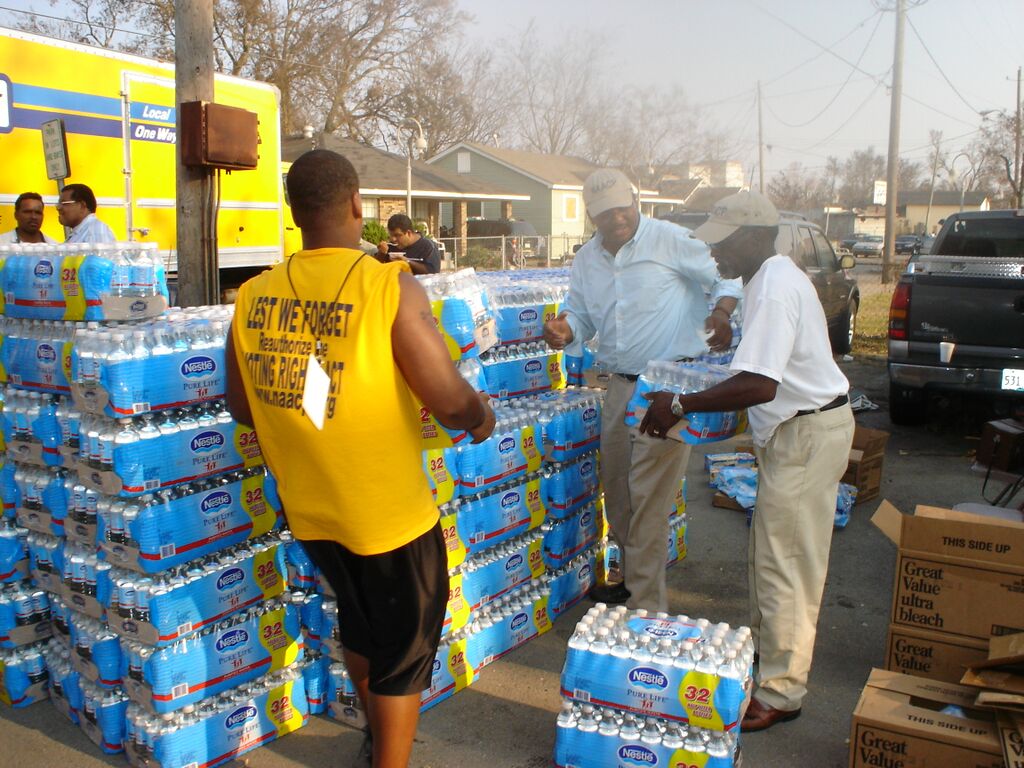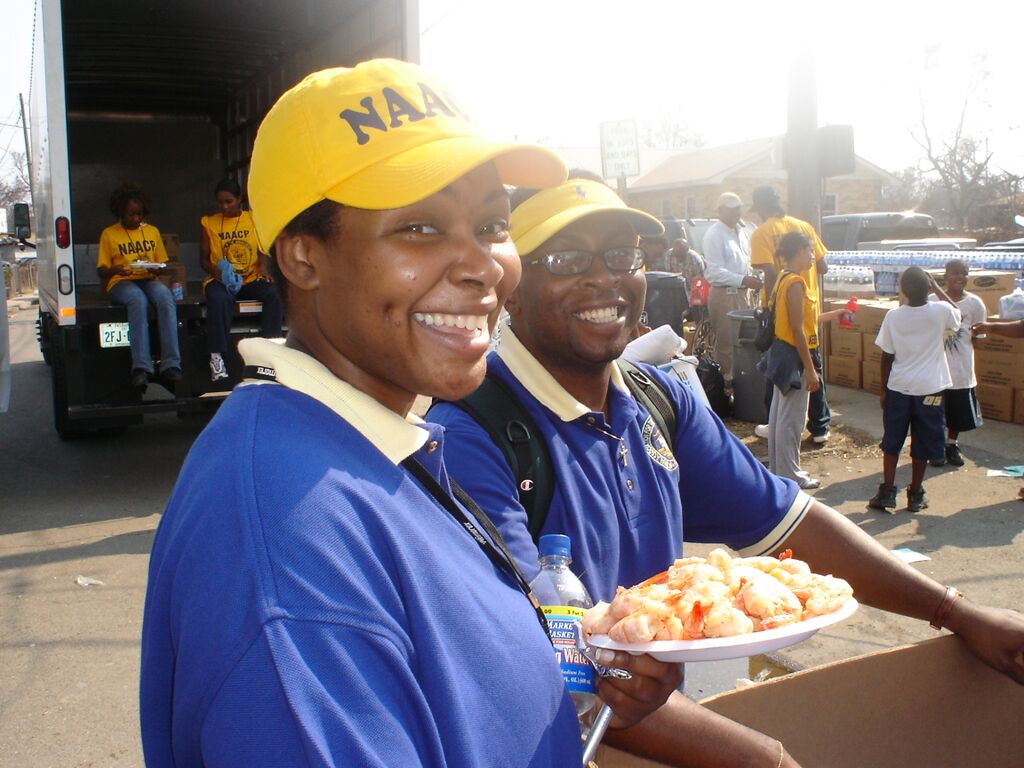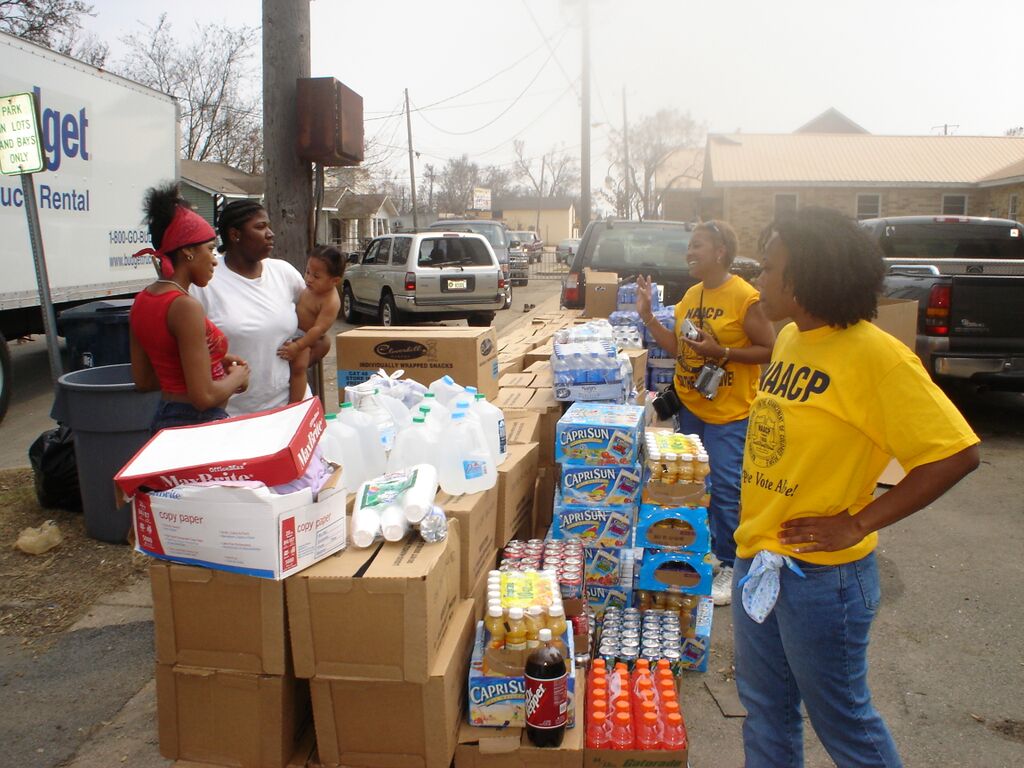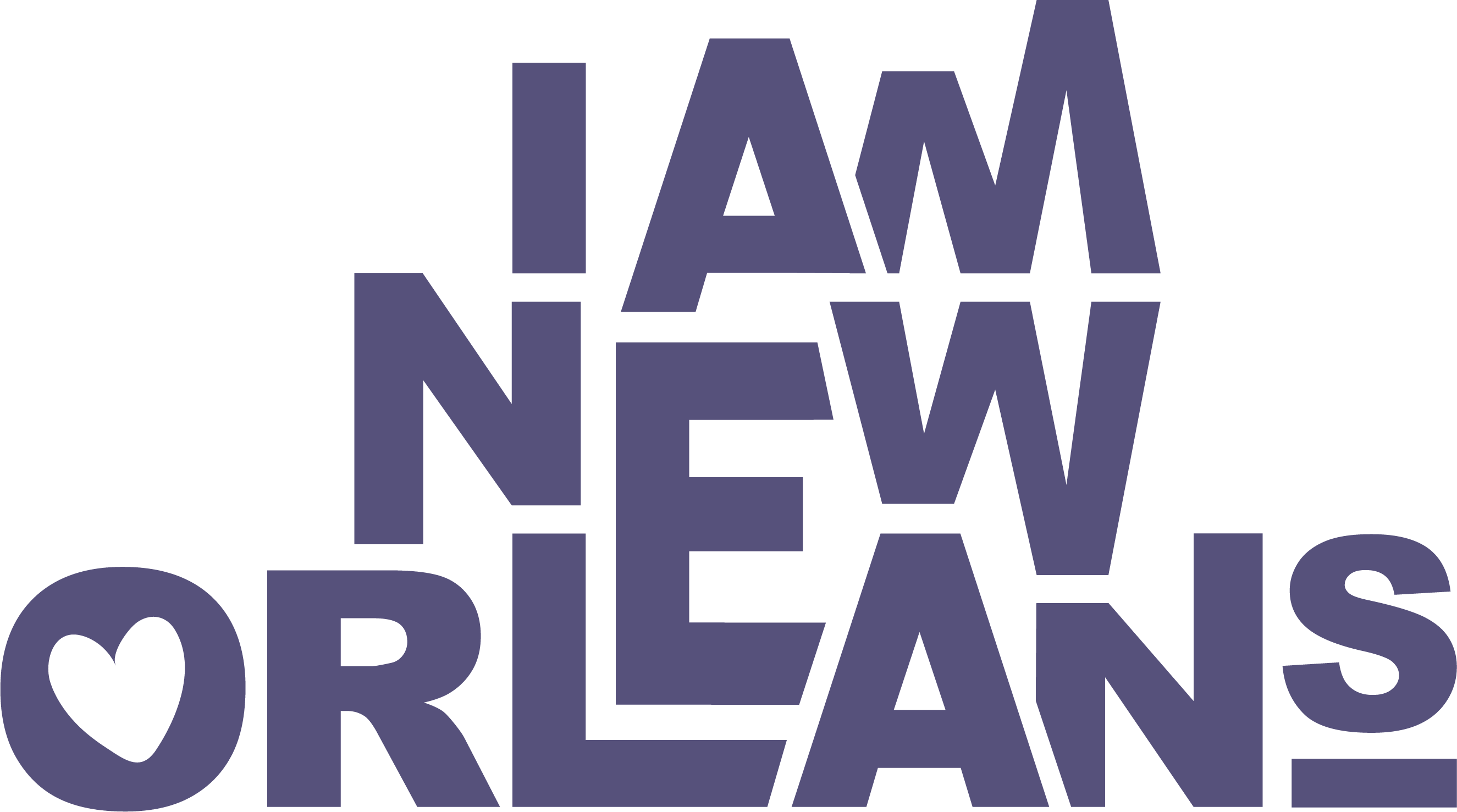Nearly two decades after Hurricane Katrina, the people of New Orleans and Mississippi’s Gulf Coast continue to be a testament to hope, ingenuity and perseverance. Communities have done more than rebuild — they are reimagining systems to create opportunity for all, especially children. While significant progress has been made, critical work remains to ensure that growth is truly equitable and lasting. As part of an ongoing reflection series called Rooted in Us, W.K. Kellogg Foundation (WKKF) staff and local leaders share their perspectives on community efforts, lessons learned and the investments still needed to build a future where all children can thrive. WKKF has been investing in New Orleans and Mississippi since the 1940s but deepened its commitment after Hurricane Katrina, supporting locally driven efforts that improve health, education and economic opportunity.
In this conversation, Alyson Curro, a communications officer at WKKF, speaks with Nsombi Lambright-Haynes, executive director of One Voice, a Mississippi-based organization advancing racial justice, civic engagement and systems change across the South. Their conversation explores the role of community organizing in the aftermath of Hurricane Katrina, the founding of One Voice during a time of institutional failure and displacement and how grassroots leadership has shaped policy change, power building and the ongoing fight for equity in the region.
Curro: Where were you in August 2005 when Hurricane Katrina struck? And how did it impact you personally and professionally?
Lambright-Haynes: In August 2005, I was in Jackson, Mississippi. I was at home. That Sunday, I’d heard reports about the storm coming. My mother and grandmother said, “Make sure you’ve got batteries, water and your car gassed up — this storm is supposed to be bad.” So I said, “Okay,” and went to the store to get a few things.
But when I got there, the shelves were empty — and I remember thinking, “What is going on?” That was my first indication that this was different. I grabbed what I could and went home, and just thought, “Oh my goodness. What in the world?”
I went to bed that night, and then the storm came. I remember sitting on my couch, watching it through the window — seeing the trees bend like I’d never seen before. I wasn’t panicked, but I was amazed — and a little scared. We lost power, but I had no idea how bad it was in Louisiana or on the Mississippi Gulf Coast.
I was just sitting there in my living room, thinking “Okay, the power’s out, it’s raining hard,” completely unaware of the devastation elsewhere.
Curro: How long were you without power?
Lambright-Haynes: I think I was without power for about three weeks. Later that day, I went to my mom’s house to charge up — she still had electricity — and that’s when I learned what had happened. I was devastated. We were checking on family in New Orleans and on the Gulf Coast, trying to make sure everyone was safe.

Curro: When you think about the days and months after the storm, what stands out to you most — both in terms of the community response and the institutional response?
Lambright-Haynes: What stands out to me most during those days is how everyone, even while looking at their own needs, was ready to jump in and help. There were people without water, without power, without basic things — and they were still showing up to volunteer, serve meals and put care packages together. That’s what stuck with me.
You’d ask someone, “Is your family okay?” and they’d say, “We’re almost out of gas, but we’ll be okay.” And you’d try to hand them a package and they’d say, “No, I’m letting someone else have it.” And we’d have to say, “No — you take one, too.”
Just because you’re volunteering doesn’t mean you don’t need help.
That’s what really stood out — that people were willing to chip in however they could. Because at that time — and I’m talking about 2005 — there just wasn’t a commitment from the government or from agencies to be there and lend a hand. And so, community kind of felt like we’re all we got.

Curro: In what ways do you feel Mississippi has changed since Katrina, and what hasn’t changed as you take stock on the 20th anniversary? When you think about the progress made and where we still need to go, what comes to mind for you?
Lambright-Haynes: I think the state has grown a little in terms of disaster response. And I do mean a little. There are more safe houses in some counties that didn’t have them before. Agencies like FEMA and the Red Cross have improved, and organizations like ours are better, too, because we’ve had to practice so many times over the last 20 years.
But what hasn’t changed is the government’s long-term commitment. The focus is still more on business growth than people growth, family growth, housing. That hasn’t shifted. You look at other states like Florida, and they have resilience hubs in every county. We’re nowhere near that. Mississippi is still far behind when it comes to disaster preparedness.
Curro: What did Katrina reveal about systems of inequity that were already in place, particularly for Black communities and low-income families?
Lambright-Haynes: It revealed a lot of biases. So much of the relief effort went to wealthier areas. That’s really where One Voice was born. NAACP branches on the Gulf Coast and in South Mississippi were calling for help — so were the churches — because their neighbors couldn’t access relief.
These folks were completely forgotten. No power, no communication, no access to help. We immediately went down to those areas — Black neighborhoods, Black churches —places that weren’t connected to any official aid systems. They weren’t even on the radar for mainstream agencies at the time.

Curro: One Voice has been at the forefront of movement building in Mississippi. How did the organization grow out of this moment?
Lambright-Haynes: It really did grow out of the storm and noticing those systemic inequities. We were responding to the immediate needs — delivering food, water, diapers — but we were also documenting what we saw. Human rights violations. Police abuse. And we turned our office into a warehouse during that time.
That’s when I learned that you can’t just have an 18-wheeler pull up to your house. You need a loading dock. We didn’t know that. People across the country were calling us, saying they wanted to send diapers — and we wanted to get them to families. But we had to figure it all out in real time.
Eventually, when things calmed down a bit, funders started asking, “What’s next? What can Mississippi do to be better prepared for the next storm?” That’s when the idea for One Voice started taking shape.
Curro: What else were you storing in that office?
Lambright-Haynes: Clothes. Water. Diapers. Batteries. Canned goods. All kinds of supplies. People were so generous — and we were doing the best we could to get things where they were needed most.
Curro: You spent your career advocating for racial equity, democracy and human rights. What are some of the victories you’re most proud of since Katrina?
Lambright-Haynes: Helping thousands of evacuees from Louisiana vote — even if they couldn’t go home. That was huge. We organized buses so they could go back and vote during early voting in Louisiana.
Another big victory was avoiding the state takeover of Jackson Public Schools. We joined a coalition and successfully kept the district under local control.
Curro: Who are some of the unsung heroes of that early post-Katrina period?
Lambright-Haynes: Oh, wow — there are so many. One that comes to mind is Mr. James Crowell on the Gulf Coast. He was president of the Biloxi NAACP branch. He was doing so much on the ground, even as he was affected himself.
Curro: What does leadership look like in Mississippi — especially movement leadership among female and Black Mississippians?
Lambright-Haynes: It’s about love and compassion for the community. It’s selfless. The leaders I admire most are the ones who put the community’s needs first. They’re not in it for recognition. They lift others up. That kind of servant leadership — that’s what’s most valued and most needed here.
Curro: With all the challenges Mississippi is facing — from maternal health to education to democracy — where are you seeing hope?
Lambright-Haynes: I see hope in civic engagement. Even with all the voter suppression, we still see people showing up. Every election, we see more new voters — more folks excited about changing the system.
We run an election protection hotline at One Voice, and the level of participation is encouraging. Horn Lake, Miss., just elected its first Black mayor. That’s progress. I believe this civic growth will lead to change in healthcare and education, too.
Curro: What issues is One Voice focused on right now?
Lambright-Haynes: Definitely civic engagement is huge. Mississippi’s voter system is antiquated — we need online registration, early voting, to end disenfranchisement for people with criminal records, and get rid of voter ID. Every circuit clerk runs things differently, and that causes confusion.
We also need our ballot initiative process reinstated. And we’re still fighting for public education. Our schools are underfunded and over tested. Students don’t have what they need to succeed — but they’re tested constantly. That’s not right. Every school should be resourced at an excellent level. You shouldn’t be able to tell what neighborhood a school is in just by walking through the door.
Curro: What do you want future generations to understand about this moment — about Katrina and its aftermath?
Lambright-Haynes: I want them to understand that Katrina was a horrific disaster — and we were not prepared. We should have been. There were systemic failures. We needed to learn how systems need to work — and how communities need to have processes in place to protect themselves. And government has to work to protect its people.
Curro: Is there anything else you’d like to add?
Lambright-Haynes: Just one thing — those disparities during Katrina, they didn’t start with the storm. The housing disparities were already there. Katrina just ripped the bandage off and exposed what was already happening. That was part of the early conversation at One Voice — how do we deal with the systemic inequities that were already in place, that the storm made impossible to ignore?
Want to learn more about One Voice and its work to advance racial justice, civic engagement, and community power across Mississippi and the South? Visit onevoicems.org to explore its advocacy, policy initiatives and how you can support lasting change driven by and for the communities most impacted.


Comments